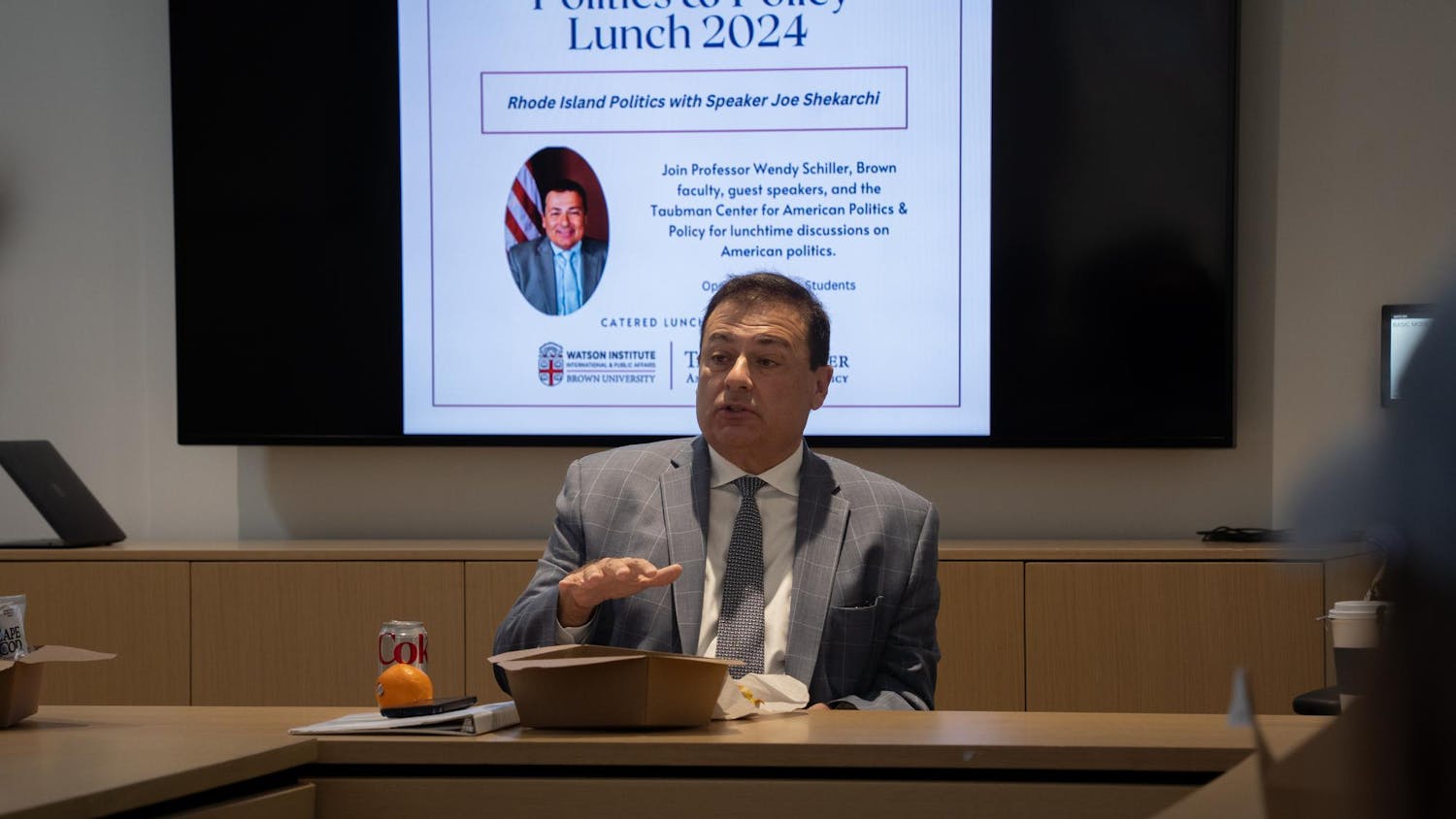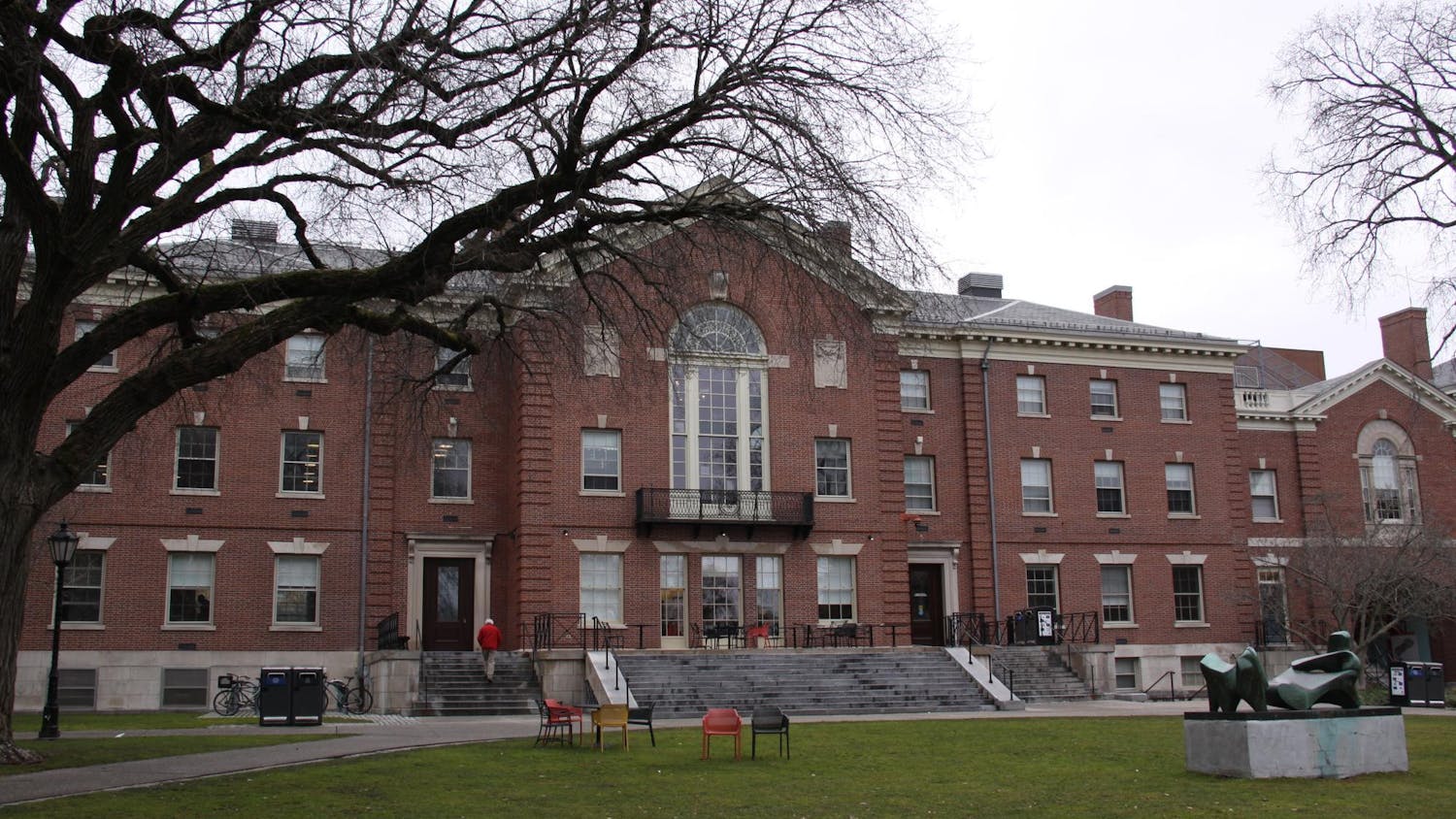Achille Mbembe, a professor in history and politics at the Wits Institute for Social and Economic Research, said "studying Africa is a compelling, exhilarating and a perplexing task" in a lecture entitled "Africa in Theory" in Pembroke Hall 305 Wednesday night. The lecture aimed to shed light on the misguided ways Africa has been studied in contemporary history.
Mbembe opened his lecture with a question to the audience of more than 60 people: "What does it mean to write the world from Africa, or to write Africa into the world today?"
He began by outlining how the dominant methods of studying Africa have led to a paradoxical relationship between the continent and intellectuals. On one hand, he said Africa has provided the foundations for many modern disciplines, such as anthropology, political economy, psychoanalysis and post-structuralism. On the other hand, because of its history, Africa is often seen as broken and underdeveloped despite significant progress in the continent. Some academics assume that one cannot produce new ways of thinking by working in Africa, Mbembe said. "It is as if Africa and theory are incompatible," he said.
Mbembe cited the concept of presentism as one of the major contributors to the creation of this paradoxical view. He said presentism relies on statistics as a way of measuring what Africa is and can become, without looking at the underlying social context. For instance, a statistic that 80 percent of a country is unemployed can be misleading because the people in that country may be working every day in unconventional jobs for a day's wage. Presentism takes the unemployment statistic into account while ignoring the social factor of people using themselves as infrastructure.
Consequently, this method of defining African life "turns Africa into a pathological case and a field of lack," Mbembe said, adding that it focuses on what Africa is not rather than what it is. This leads to a narrow definition of what Africa stands for.
Some studies in the 1980s and 1990s examined Africa differently, an approach that Mbembe lauded. Scholars in the 1980s employed interpretive history, which considers individual social factors such as the idea of people basing their lives on conditions of precariousness and uncertainty. Mbembe said this should be the primary example of how we should think and write about human agency, adding that these studies have not been sufficiently recognized.
"These types of studies are redrawing the global intellectual map," he said.
Mbembe concluded the lecture with the assertion that Africa is facing a "language crisis."
"We need to invent the vocabulary for the concepts that are going on," Mbembe said. A "new imagination" is forming in Africa, he said, and the lack of theoretical language to describe the growth of scholarship in Africa is a problem. Defining new concepts through the study of Africa will be a monumental restarting point for the continent, he said.
During the question and answer period, Linda Quiquivix, a postdoctoral fellow in critical global humanities at the Cogut Center for the Humanities, asked about the ethical role of intellectuals in engaging with the study of Africa. Mbembe responded that prior discourse already exists in people's minds when discussing Africa. But social creativity must be given attention, he said.
"There are things to be said about Africa," he said. "When a person travels to Africa, they realize there is much space for novelty."
ADVERTISEMENT




